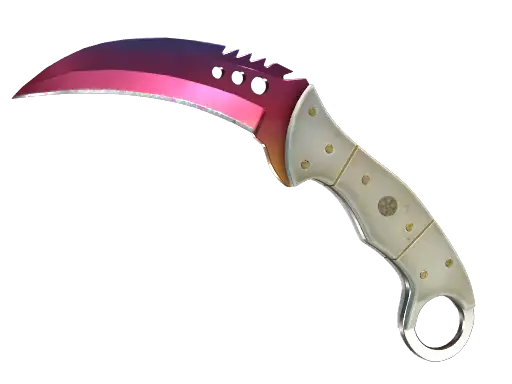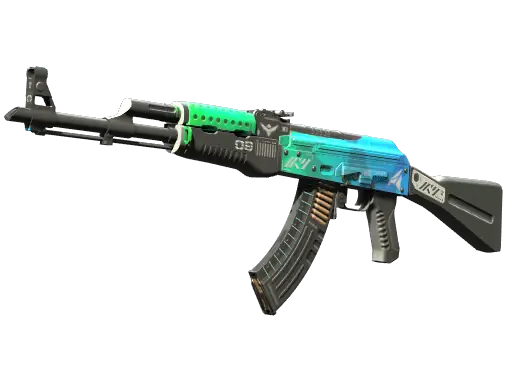How to Calculate Fade Percentage in CS2 Skins (Step-by-Step)
If you’re wondering how to calculate fade percentage CS2, you’re in the right place. Knowing a knife or weapon’s true fade % helps you price correctly, avoid overpay traps, and spot bargains. Below is a clear workflow using paint seeds and trusted calculators—plus market context, rarity tips, and safety checks.
Calculate Fade Percentage in CS2 (Step-by-Step)
1) Get the paint seed (pattern index)
The fade layout is controlled by the item’s paint seed (pattern index), an integer from 0–999. You can view it by inspecting the item in-game or via the Steam Market web-inspect link.
2) Use a reputable calculator
- CS2Fades.com — instant lookup by seed.
- Open-source calculator (GitHub) — converts seed → fade % algorithmically.
3) Check edge cases
Karambit/Talon: often summarized with color ratios (e.g., 90/5/5) in addition to a single %.
Falchion: some seeds effectively exceed 100% (~110%) because the gradient extends onto the handle.
4) Record & verify
Save the computed fade %, take front/back screenshots, and cross-check with a second tool to avoid disputes.
| Step | Action | Tool / Tip |
|---|---|---|
| 1 | Find paint seed | Inspect in CS2 or Steam web-inspect |
| 2 | Compute fade % from seed | cs2fades.com / GitHub calculator |
| 3 | Consider special cases | Karambit/Talon ratios; Falchion handle coverage |
| 4 | Cross-check & screenshot | Use a second tool; capture both sides |
| 5 | Price accordingly | Higher % → higher value; float/rarity still matter |
Overview of Fade Skins
Fade percentage describes how much of the surface shows the purple-pink-gold gradient versus gray. Most items land between 80%–100%; 100% (“Full Fade”) is rare and commands premiums.
- Knives: Bayonet, M9, Butterfly, Karambit, Talon, Falchion, Classic, etc.
- Weapons: Glock-18 | Fade, AWP | Fade, and more.
Price History & Market Trends
| Fade % Range | Tier | Market Insight |
|---|---|---|
| 80–85% | Entry | Visible gray; budget entries and learning flips. |
| 90–95% | Mid-High | Stronger appeal; buyers start bidding up. |
| 95–99% | Premium | Near-full look; sizable overpays if float is strong. |
| 100% (Full Fade) | Top | Collector grade; typically the highest premiums. |
| ~110% (Falchion) | Special | Template extends onto handle; niche but coveted when documented. |
Tip: Steam Market prices skew higher (wallet convenience/fees) than cash sites. Always check fresh comps.
Investment Potential
Short-term flips
- Target undervalued high-fade listings (≈95%+) with good floats.
- Exploit spread between Steam wallet listings and reputable cash markets.
- Clear photos & full details → faster turnover at stronger prices.
Long-term holds
- Iconic models (Butterfly, Karambit, M9) with near-perfect fades and low floats resist downturns.
- Falchion “>100%” edge-case seeds can attract niche premiums—document clearly.
- Diversify: keep 1–2 liquid knives plus one steady weapon fade (e.g., AWP Fade).
Rarity, Pattern & Float Significance
Pattern seeds & ratios
Each fade uses a seed to position the template. Most knives use the 80–100% frame, while Karambit/Talon often include color ratios like 90/5/5.
Float value
Fades are typically FN–MW. Low floats preserve a cleaner edge and fetch premiums. When two items share similar fade %, the cleaner float generally wins the deal.
How to Buy/Sell Safely
Steam Market
- Pros: safest, built-in audience, easy inspect links.
- Cons: wallet funds only, fees, often higher prices than cash sites.
Reputable 3rd-party markets
- Pros: lower prices, cash-out options, room to negotiate.
- Cons: verify site reputation; always confirm fade %, seed, and float.
Private trades
- Request seed, float, fade % screenshots and live inspect links.
- Use collateral or trusted middlemen only if necessary; avoid off-platform payments with strangers.
FAQ: How to Calculate Fade Percentage CS2
What’s the normal fade % range?
Most fades sit between 80% and 100%. Falchion has community-noted cases around ~110% due to handle coverage.
Are 99% fades nearly the same value as 100%?
Some 99% seeds look close, but Full Fade (100%) usually commands a stronger premium, especially with low float.
How do I check the fade % from a seed?
Use CS2Fades or the open-source calculator; both map seed → % without unreliable pixel-counting.
Does float matter as much as fade?
Fade drives the big premium, but float can still swing price and liquidity—cleaner edges sell faster and higher.
Conclusion
Mastering how to calculate fade percentage CS2 gives you a real trading edge: price confidently, justify overpays, and spot mislisted bargains. Cross-check seeds, use reputable tools, weigh float and rarity, and always compare against current comps. Trade safe and let the gradients work for you.


